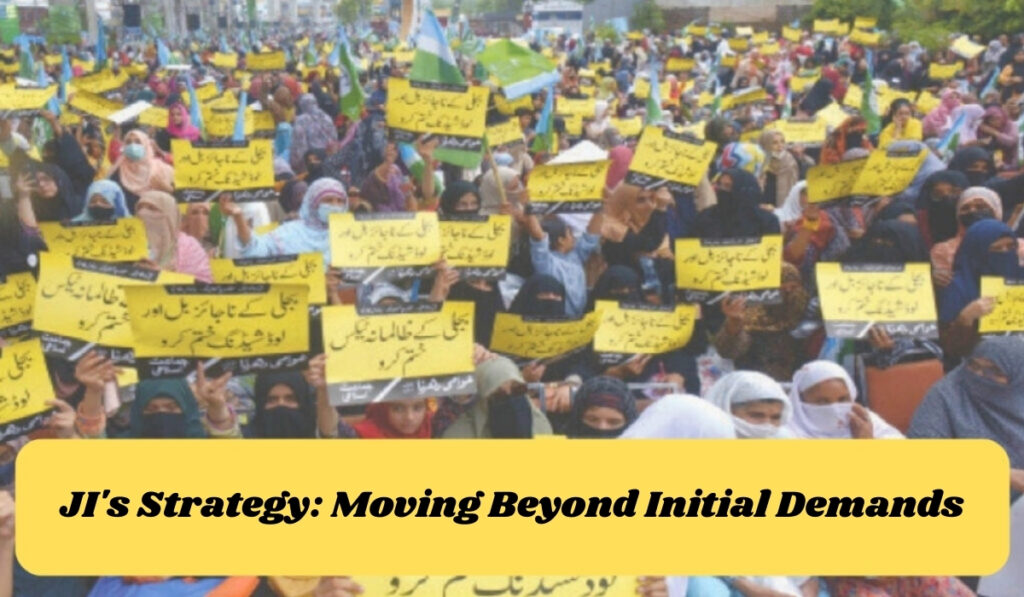Introduction
The Jamaat-i-Islami (JI) has embarked on a significant movement aimed at addressing pressing socio-economic issues in Pakistan. Led by Hafiz Naeem-ur-Rehman, the party’s recent sit-in at Liaquat Bagh in Rawalpindi marks the beginning of a broader campaign. This article delves into the details of their demands, strategies, and the broader implications of their movement.
Phase One: Addressing Immediate Concerns
The Sit-in at Liaquat Bagh
The first phase of JI’s movement involved a sit-in at Liaquat Bagh, Rawalpindi. This demonstration, which has persisted for several days despite adverse weather conditions, underscores the party’s commitment to addressing inflation and inflated power bills.
Key Demands
- Reduction in Electricity Bills
- JI is advocating for a significant reduction in electricity bills. The party argues that the current rates are unsustainable for the average Pakistani and calls for the elimination of additional taxes on electricity.
- End of Petroleum Levy
- The party demands an end to the petroleum levy, which they argue contributes to the overall increase in living costs.
- Availability of Affordable Edibles
- Ensuring that basic food items are available at reasonable rates is another primary demand. JI believes that this is essential for the well-being of the general population.
- JI calls for fairer tax policies, particularly focusing on reducing the burden on traders and exporters.
Phase Two: Systemic Change
Transition to Broader Goals
With the initial demands addressed, JI plans to shift its focus toward broader systemic changes. This phase aims to overhaul various aspects of the country’s socio-economic and political landscape.
Potential Non-Payment of Bills
Naeemur Rehman has warned that, in consultation with traders, industrialists, and civil society, JI might consider not paying electricity bills for August if the current inflated rates persist. This bold step underscores the party’s resolve to challenge unjust policies.
Expanding Protests
- Karachi Demonstration
- JI has announced plans for a sit-in outside the Governor House in Karachi starting Wednesday. This move is part of a broader strategy to apply pressure on provincial governments.
- Nationwide Protests
- The party has indicated that if their demands are not met, they will organize protests across other provincial capitals. This could potentially lead to nationwide unrest, posing significant challenges to the government.
Critical Issues Highlighted by JI
Forensic Audit of Independent Power Plants (IPPs)
Naeemur Rehman has called for a forensic audit of IPPs, accusing them of exploiting the public by charging international coal prices while using cheaper alternatives like sugarcane waste. He alleges that ministers have misled the public about the legal implications of terminating these agreements.
Impact on the Public
The financial strain on the public has been a focal point of JI’s protests. Many individuals have reportedly sold personal belongings, including jewelry, to pay their electricity bills. The party argues that the government’s inaction has exacerbated the public’s hardships.
Advocacy for Women’s Rights
Educational Opportunities
JI highlights the disparity in educational opportunities for women, especially in rural areas. Rehman argues that landlords and the elite class deliberately restrict access to quality education to maintain their influence.
Role of JI Women’s Wing
The party’s women’s wing plays a crucial role in raising awareness and advocating for women’s rights. JI encourages greater participation of women in political activities to amplify their voices and address their specific concerns.
Critique of Government Policies
Privatization of Schools
Rehman has criticized the Punjab government’s plan to privatize 13,000 schools, arguing that the state should focus on improving the quality of public education rather than relying on NGOs. JI advocates for a unified education system with a standardized curriculum across the public and private sectors.
Conclusion
The Jamaat-i-Islami movement, under the leadership of Hafiz Naeem-ur-Rehman, is gaining momentum as it transitions from addressing immediate socio-economic issues to advocating for broader systemic changes. The party’s commitment to reducing electricity bills, ending the petroleum levy, and ensuring affordable food, along with its critique of government policies and advocacy for women’s rights, highlights its comprehensive approach to improving the lives of Pakistani citizens. As JI prepares for further protests and potential nationwide agitation, the government’s response will be crucial in determining the movement’s impact on the country’s future.
References
- Independent Power Plants (IPPs): The issues surrounding IPPs and their financial impact on the public.
- Educational Disparities: Analysis of educational opportunities for women in rural areas.
- Government Privatization Plans: The implications of privatizing public schools in Punjab.
- Economic Policies: Detailed examination of the petroleum levy and its impact on inflation.
This comprehensive overview provides an in-depth understanding of Jamaat-i-Islami’s ongoing movement, its objectives, and the broader socio-economic context within which it operates.

